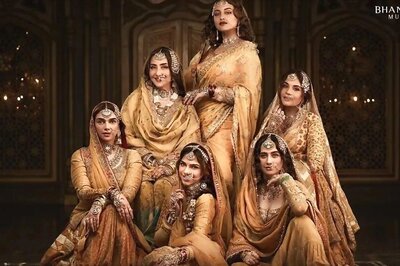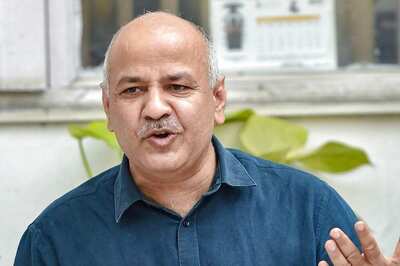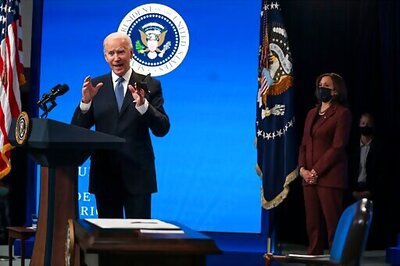
views
Kolkata: A string of art and experimental movies were commercial success as content-driven and thought-provoking films took centrestage in Bengali cinema this year.
The Bengali film industry remained in the limelight the entire year as the flops went overlooked because of active patronage from the new state government.
Young director Srijit Mukherji got rave reviews and set the box-office on fire with his second film '22nd Srabon', which means the 22nd day of the Bengali month 'Srabon'.
Director Goutam Ghosh changed hats for the film and delivered an electrifying performance as an eccentric poet in the thriller starring Prosenjit Chatterjee and Raima Sen.
Debutante Kamaleshwar Mukherjee's 'Uro Chithi', a contemporary love story on how old SMSes can unfold new tales, surprised everybody with a superb box-office report.
Anindo Bandopadhyay's 'Chaplin', debutante Shibaprasad Mukherjee and Nandita Roy directed 'Ichche' and Haranath Chakraborty's 'Chalo Paltai' were among the other films that led the trend of "middle of the road" cinema which is commercially viable but with off-beat stories.
With a new state government at the helm, most of the who's who of Tollywood, including Bengal's reigning superstar Prosenjit Chatterjee and director Rituporno Ghosh, were seen rubbing shoulders with Chief Minister Mamata Banerjee. Four MLAs and two MPs in her party hail from the film industry.
Besides plans to renovate the heritage Technicians Studio in Tollygunje, the state government also announced establishing an ambitious Film City on a plot along the river Ganges in Hooghly district, few kms away from Kolkata.
Bollywood showman Subhash Ghai too showed interest in Bengali cinema and produced Rituporno Ghosh's 'Noukadubi', an adaptation of Rabindranath Tagore's novel.
Aparna Sen's 'Iti Mrinalini', featuring her and daughter Konkona as an actress now past her prime, fared well at the box-office and won accolades at a number of international film festivals like Cairo, Dubai and New York.
Buddhadeb Dasgupta's 'Janala' too travelled the film festival circuits and even won the best feature film award at the prestigious Asia Pacific Film Festival held in Taipei.
Paris-based Srilankan director Vimukthi Jayasundara went to Cannes with Bengali film 'Chhatrak' as actress Paoli Dam made the industry proud by walking the red carpet.
In the 58th National Film Awards Goutam Ghosh's superhit 'Moner Manush' (The Quest), which is based on the real life of a 19th century mystic poet, won two trophies including the Nargis Dutt award for best feature film on national integration.
The best English film award went to 'Memories in March', which was scripted by maverick director Rituparno Ghosh, who also played the lead role of a homosexual.
Young director Kaushik Mukherjee's bold documentary 'Love in India' won the National Award for the best film on family values.
His another critically-acclaimed and controversial film failed to get a theatrical release in India due to its sexually explicit content but was premiered at the famed Berlin Film Festival.
The legendary New Theaters Studio, which had given Indian cinema its icons like Prithviraj Kapoor and Bimal Roy, was revived with the innocent love story 'Ami Adu' (I am Aadu).
Besides bagging the National award for best Bengali feature film, 'Ami Adu' won the silver award for best film in SAARC Film Festival.
Anjan Dutt's rock musical 'Ranjana Aami Aar Ashbona' pleased both the critics and the audiences.
Few run-of-the-mill movies like Tollywood superstar Dev's 'Paglu' and 'Romeo', Jeet's 'Fighter' and 'Shatru', Aniket Chattopadhyay's 'Bye Bye Bangkok', also attracted the masses.
"The trends clearly reflect the change in tastes of both the audiences and the filmmakers. But the number of poor films far exceed the good ones," veteran film critic Shoma A Chatterji told PTI.
With more than a hundred releases this year, only a handful of films can be counted upon.




















Comments
0 comment